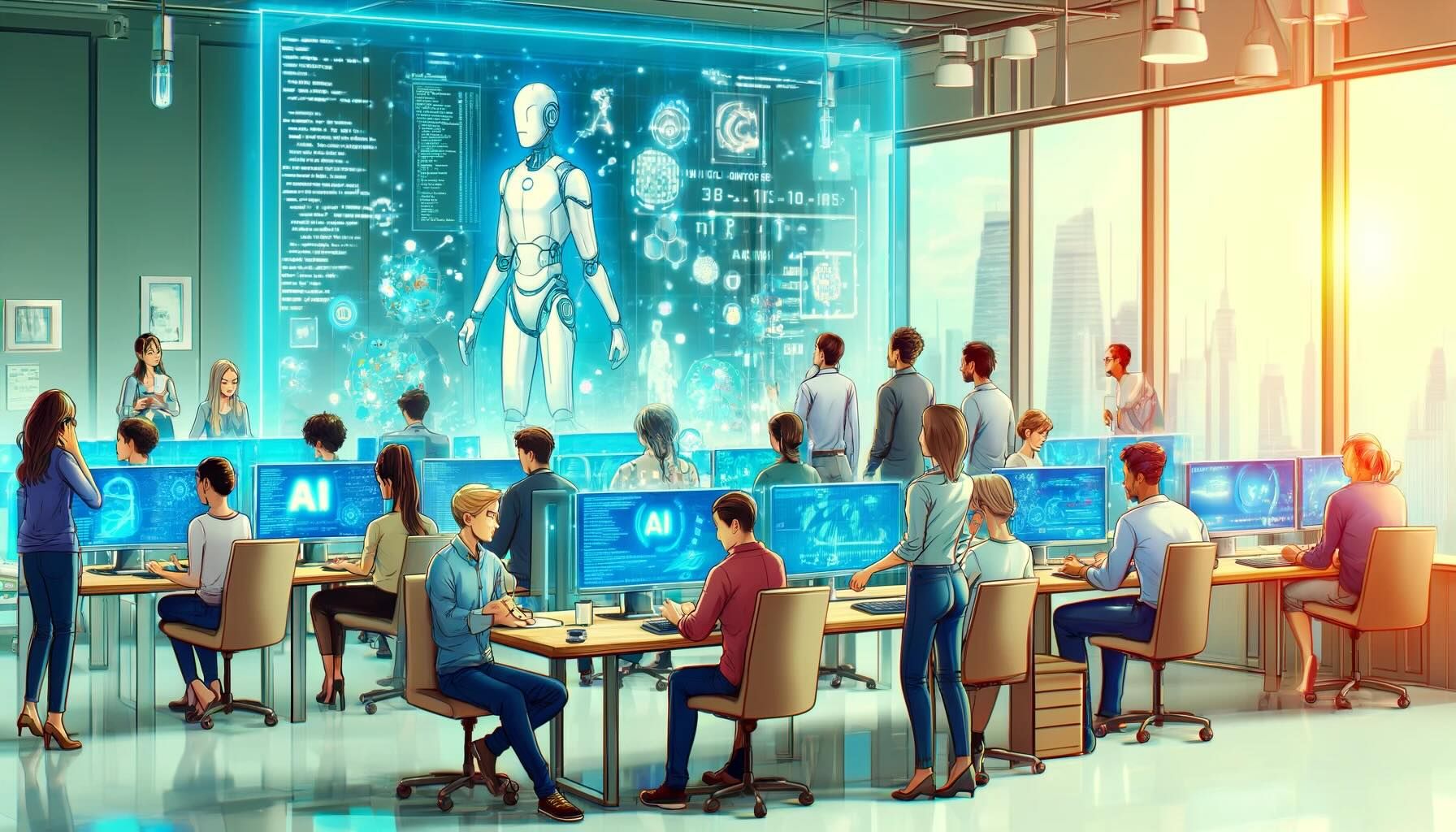Introduction
In the dynamic landscape of technology, Artificial Intelligence (AI) is no longer just a buzzword but a pivotal force reshaping the IT industry. As IT professionals, understanding the implications of AI is crucial not only for staying relevant but also for harnessing its potential to enhance our work. This article delves into how AI is integrated into various IT domains, addresses the prevalent concerns about job security, and highlights the evolving synergy between human intellect and machine learning.
Understanding AI and Its Role in IT
Artificial Intelligence, or AI, refers to the capability of a machine to imitate intelligent human behavior. In the realm of IT, AI’s applications are vast and transformative. From automating routine tasks to analyzing massive datasets, AI technologies are becoming indispensable.
Applications in IT
- Data Management: AI algorithms can organize, manage, and retrieve data from huge databases efficiently, reducing human error and increasing accessibility.
- Cybersecurity: With cyber threats becoming more sophisticated, AI helps in predicting and mitigating potential breaches, enhancing the security landscape.
- Cloud Computing: AI optimizes cloud environments for better resource management, leading to cost-effective and scalable solutions.
The Concern of Job Replacement
A common apprehension among IT professionals is the fear of AI replacing their jobs. This concern is not unfounded, as automation can lead to job displacements in certain areas. However, the narrative isn’t solely about job loss but about transformation. Statistics indicate that while AI may automate certain roles, it also creates new opportunities requiring advanced skills and training.
Areas Where AI Complements Human Effort
Rather than viewing AI as a competitor, it should be seen as a collaborator. AI excels in handling data-intensive and repetitive tasks, allowing IT professionals to focus on more strategic and creative aspects of their roles.
Examples of Collaboration
- Automated Testing: AI can rapidly perform and replicate detailed tests on software applications, freeing developers to focus on more complex problems.
- Network Management: AI‑driven tools monitor network traffic and performance, predicting outages and bottlenecks, which helps in proactive maintenance.

Skills to Develop to Stay Relevant
Adapting to the evolving tech landscape is essential. For IT professionals, developing a set of complementary skills is crucial to work alongside AI effectively.
Key Skills to Cultivate
- Machine Learning and Analytics: Understanding the basics of AI and machine learning algorithms will be crucial as these technologies become standard tools in the IT toolkit.
- Soft Skills: Critical thinking, problem‑solving, and effective communication are vital, as these are areas where human judgment is still indispensable.
- Security and Ethics: As AI systems handle more data, skills in cybersecurity and ethical considerations around AI deployments become increasingly important.
Conclusion
The integration of AI in IT is inevitable and brings with it a host of challenges and opportunities. For IT professionals, the focus should be on adaptation and the continuous learning of new skills. With AI handling more routine tasks, professionals can pivot to roles that require human intuition and creativity, ensuring their invaluable place in overseeing and integrating AI systems. The future of IT is not about human versus machine but about human with machine, creating a collaborative environment that enhances both the capabilities of AI and the strategic influence of IT professionals.
